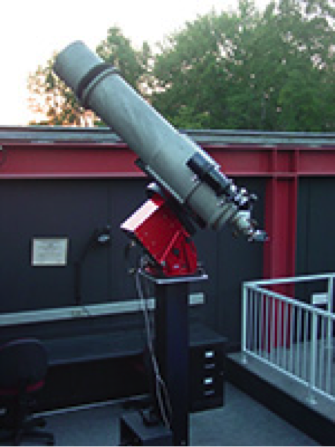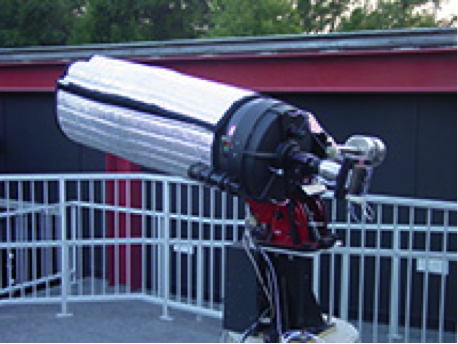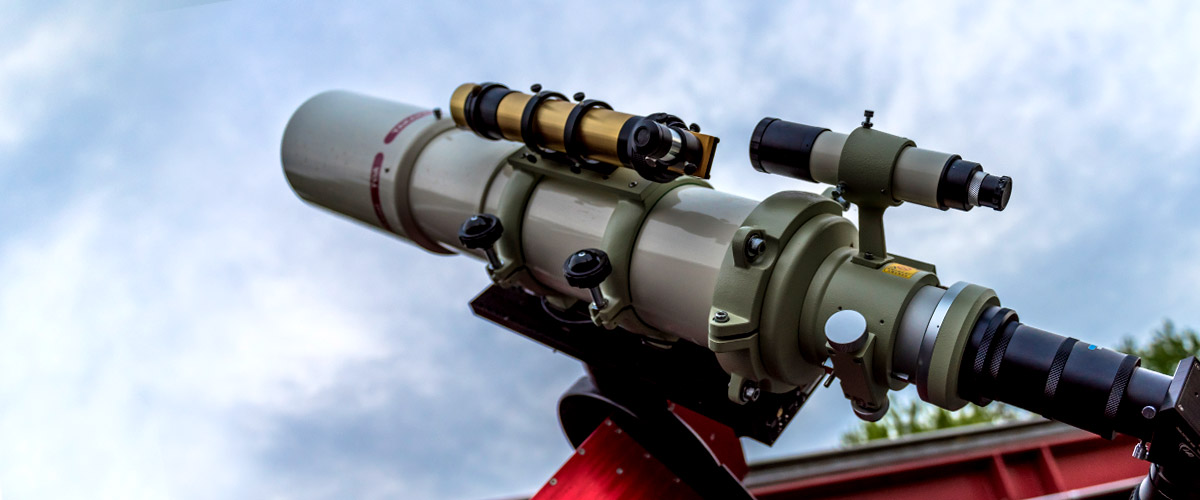We have eight permanently mounted telescopes, each with astronomical cameras and internet connections.
• Our No. 1 telescope is the 6-inch Clark refractor. Hans Eppinger of Hughes Optical Products, Inc. donated the optical tube assembly of the Clark refractor to Rose-Hulman in 1990. The Clark is used mainly for visual observing. However, a STL-6303E CCD camera is available for imaging. We also have solar filter for viewing sunspots.
• The No. 2 telescope is a Takahashi 6-inch refractor. It has a much shorter focal length and wider field of view than the Clark. It is mainly used for visual observing.

Takahashi Refractor telescope mounted in the Oakley Observatory.
• Four of the remaining six telescopes are 14-inch Celestron Schmidt-Cassegrain optical systems on Paramount ME mounts. Telescopes No. 3 and 4 include a CCD camera with a built-in filter wheel for taking color images. These telescopes are used for imaging deep sky objects and for research. Telescopes No. 5 and 6 are used primarily for visual observing. We do have an SBIG STL-4020M camera available for use on either of these telescopes. Telescope No. 6 was donated by Larry Dultz of Terre Haute.

14-inch Celestron Schmidt-Cassegrain with CCD camera.
• Telescope No. 7 is a 20-inch Ritchey Chretien telescope from RC Optical. It is used primarily for deep sky imaging with an STL-1001E CCD camera. This telescope is identical to the telescope in the Oakley Southern Sky Observatory in Australia.
• The No. 8 telescope is a 17-inch modified Dall-Kirkham reflecting telescope made by Planewave Instruments and represents the very latest in telescope design. It offers better optical performance at a lower cost than the classic Ritchey Chretien design. This telescope is normally used with an STL-1001E CCD camera for deep sky imaging.
• We also have a mounted 10-inch Newtonian telescope. This portable telescope is used for visual observing. We frequently take it to elementary schools or to local parks for star parties. It has a solar filter so it can also be used during the day to view sunspots.



